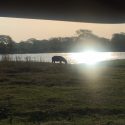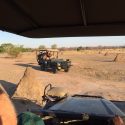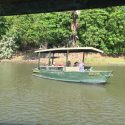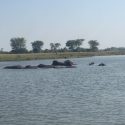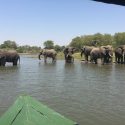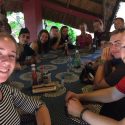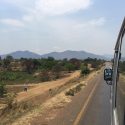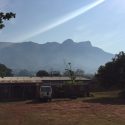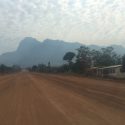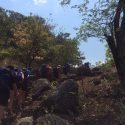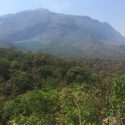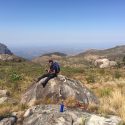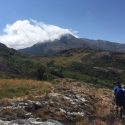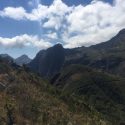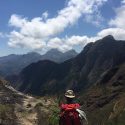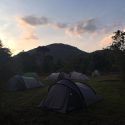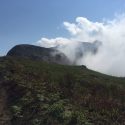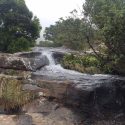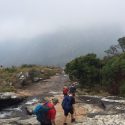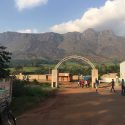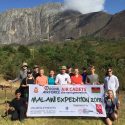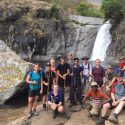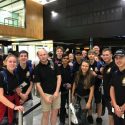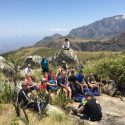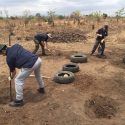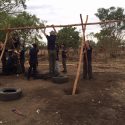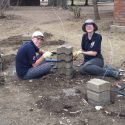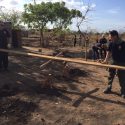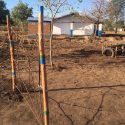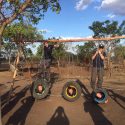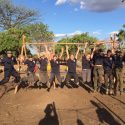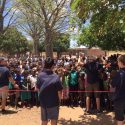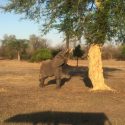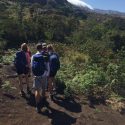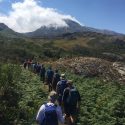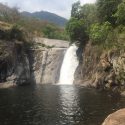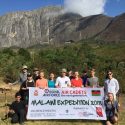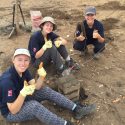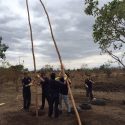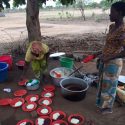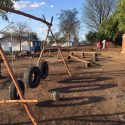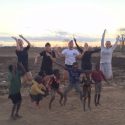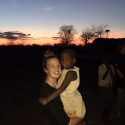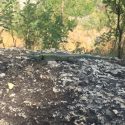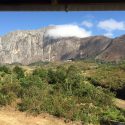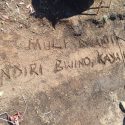After a year of planning, the 359 (Bexleyheath) Squadron led expedition, consisting of 10 Cadets and 4 staff across Bexleyheath, Welling, Swanley, Battle and Kensington Squadron’s was made more affordable to a range of Cadets form varying background thanks to the support of the Ulysses Trust.
The trip to Malawi, Africa was part of the RAF100 celebration events and took place between 13-28th October 2018.
In the lead to the expedition the group attended various training days and a training weekend. One of the training days saw the team of Cadets researching how various playground apparatus is constructed and how similar apparatus could be built using fewer resources. In this planning day the Cadets visited a playground and made notes in order to return to the HQ and continue with research before planning and designing various playground apparatus. The training weekend took place in the South Downs in Sussex during the summer heatwave in order to assess the groups trekking skills and physical abilities as well as to encourage team bonding to a team from various squadrons.
The expedition started off in Lilongwe, the Capital of Malawi. The Cadets spent the first couple of days planning as well as exploring the town centre, exploring the local culture and of course practising their bartering skills!
After a long road transfer we arrived in the Mulanje Massif national park to meet our trekking guide. As we walked through the motel the Mulanje Massif mountains could be seen towering over the roof. The immediate peak couldn’t have been any closer however it soon became apparent the next morning during the journey to the starting point of the trek just how big the mountainous Mulanje district, some 13×16 miles (22×26 kilometres).
The three day trek of Mulanje (3,002m) started at Likhubla forest where we set off for the day walking at a steep ascent along the skyline path. Much of the Mulanje Massif consists of rolling grassland at elevations of 1800–2200m, intersected by deep forested ravines. Within the first half an hour or so the group spotted some baboons in the forest as well as various gecko’s and other interesting insects and butterflies. On the way up the igneous rock glistened under the bright sunlight, giving a glittery effect to the rock. After a very hot and steep 6 hours worth of trekking the group made it to the Chambe mountain hut for the evening. Within minutes of arrival the heavens opened and rain and hailstone fell hard. Fortunately tents were put up in time thanks to the advance thunder giving notice of the coming storm.
The trek continued with more ascent on day two, walking off from the area of the hut the group found themselves confronted with three large wooden crosses, these were the graves of three porters who died at the spot when they fell unwell with hypothermia. The tour guide explained that the porters were unregistered and explained how subsequently tougher regulations are now enforced. During a water break the guide taught the group some of the local Chicheŵa language, using his walking pole to write words such as hello in Chicheŵa in the dust of the walkway. The land was beautiful and the mountains rolled from one in to another for as far as the eye could see in all directions. The bright blue sky, orangey red looking rock and heat definitely felt a world apart to home. Day two was spent trekking from the Chambe hut via the North Peak to the Lichenya Hut, home for the second evening. The evening bought more rain and very large hail stones this time for a much longer duration. The team all took advantage of the open log fire and the local ‘bow’ game which they had previous learned to play during the orientation in Lilongwe. The game made from dried beans and carved wooden boards.
Day three saw the depart from the Lichenya hut for our final 340 metre ascent before starting the descent back down. The effect of the storm the previous evening soon became apparent when the streams and rivers were flowing. This was in our favour as the the route down followed the river which boasted many natural waterfalls, perfect opportunity for a team photo! The decent on the final day was via the Milk-run path which took the group back down to the Likhubla forest.
Cadet Corporal Natasha Fanthome from 359 (Bexleyheath) Squadron comments about the trekking phase:
“One of my highlights has been how the team has bonded over the last few days (trek) to get through tough times as well as the breathtaking views such as the rivers, waterfalls, mountains and forest. Whilst up at 7,000 feet we were walking through clouds and the temperature was cooler, which felt so nice. We came across stunning view points and where we took breaks. Being able to to sit and appreciate the views provided much motivation to persevere. Not to mention the whole experience of living in such basic conditions.”
Following the trekking phase the team travelled to Chokolongo, Balaka District where the next phase consisted of a community project building a playground for the Mlambe School, a local government primary school for some 1,200 primary school children.
The piece of land where the playground was to be built had been prepared by the local community and materials such as wooden poles, tyres and cement had been purchased ahead of the groups arrival. Extra materials such as small chains and bolts were taken from the UK to assist with the construction as well as some basic hand tools and personal protective equipment which had kindly been donated.
Prior to arrival the team had nominated a project manager and upon arrival the group began planning. Initial progress felt slow, digging holes and drilling lots of materials however after initial preparation the team completed the project in just three full days which allowed a full day could be spent with the local children, teaching them games such as ‘duck duck goose’ and ‘what’s the time Mr wolf’. A formal opening of the playground took place and the head master to cut the ribbon. The children did not know how to use a playground, however the Cadets took much pleasure in demonstrating and teaching them how to play on the apparatus.
Whilst at the project the team stayed with locals and spent time mixing with the local community. The local food was nsima, a thick starchy wheat texture which looked similar to mash potato or porridge. The nsima was served with beans. Locals ate this up to three times a day however fortunately in the evenings the team were provided with rice or chips which had been bought in preparation for their meals.
The time at the project was a real eye opener in to the local culture, a realistic image of how basic the schools were and what day to day life was like, especially for the children. Some of the children did not even have shoes or a bag to put their school books in to.
Cadet Sergeant Ellysha Franklin of 358 (Welling) Squadron commented:
“The project phase was my highlight because we achieved something that I never thought even as a team we could actually do, let alone construct more than expected in less time than planned. I loved how the team grew stronger during this phase and went on to overcome disagreements during the planning stage. I have absolutely loved spending time with the children and local families and experiencing their way of life. When I go back home I hope my different outlook on life will remain. The way I live in England in comparison to families who don’t even have the privilege of running water.”
The final part of the trip consisted of a rest and recoup Safari phase. The team would have access to running water and electricity for the first time in almost ten days. The safari camp was in Lilwonde the other side of the Shire River which was crossed by boat in order to access the camp. The Safari started before even arriving or checking in with monkeys, various buck’s, elephants and even crocodiles all spotted within minutes of arriving at the boat. The safari phase was short, barely two full days however so many animals (elephants, hippos, crocodiles, baboons, antelope, cape bush buck, kudu’s, water-hogs, zebra, monkeys, various herons, owls, vultures and owls) were seen during the afternoon and drive and morning boat safari.
The trip objectives were to foster a spirit of adventure, encourage community involvement and experience a developing world culture and to experience the trip ethos which is designed to physically and mentally test the Cadets as individuals and as a group, in a controlled manner when presented with issues in an environment away from the comfort of modern technology.
IMPACT
The impact the expedition has had on the squadron starts at the personal development and skills achieved by the Cadets as part of the pre-expedition training and once in a life time experience that these fine Cadets got.
The expedition has also been a development opportunity for the staff team. A first time as an adult instructor running a trip of this kind for two instructors, myself included.
This expedition has bought a lot of awareness of the opportunities and adventure training available to the wider squadron and organisation and has already encouraged others to get more involved in adventure. Of the expedition group, some of the Cadets have expressed desire to start to travel and see more of the world outside of typical holiday packages, one even thinking about returning to Malawi to help volunteer.
I am most grateful to the Ulysses Trust for allowing me to plan and execute this fantastic opportunity to my Cadets at a more affordable cost.
Our thanks go to the generosity of the Royal Air Force Charitable Trust for supporting this expedition. www.rafct.com



